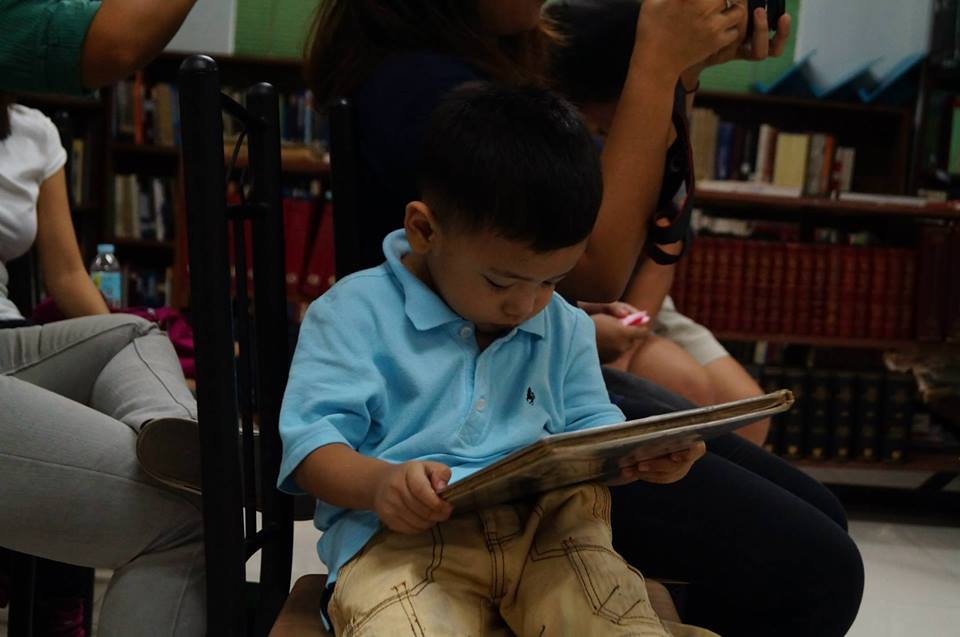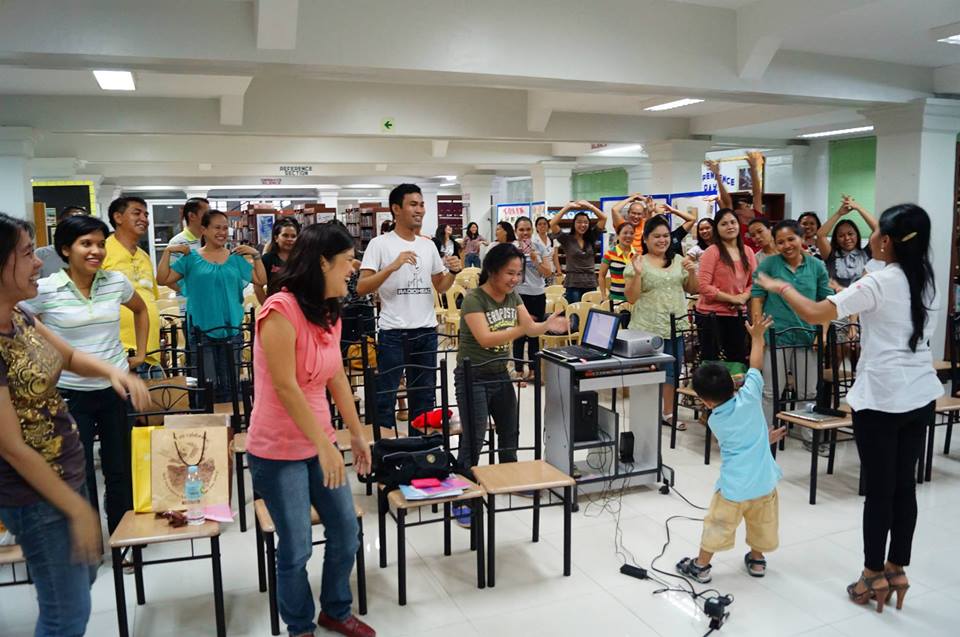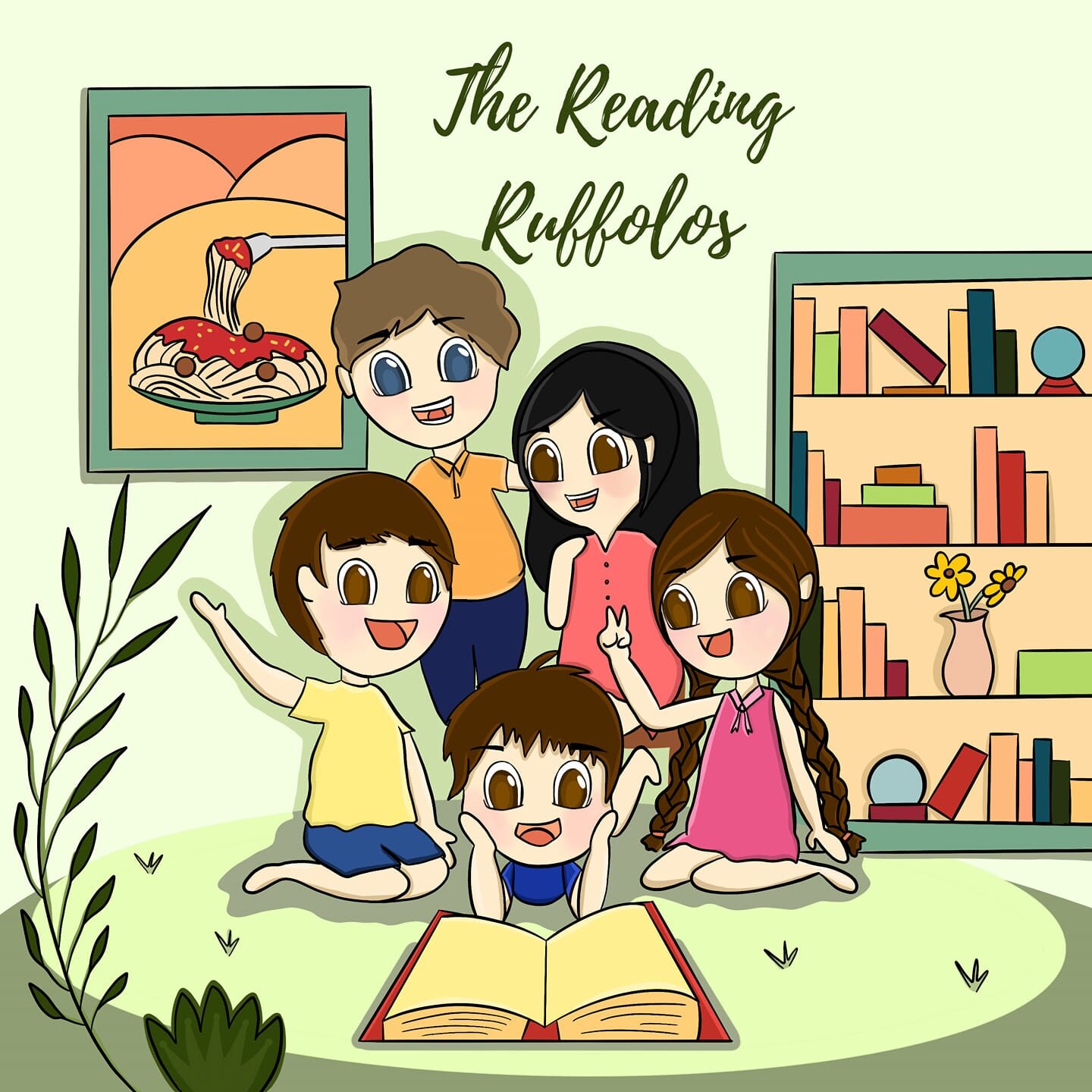
Jeanne Chall’s Stages of Reading Development noted that between six months to six years old – called Stage 0 or Pre-reading/Pseudo reading stage – children “pretends” to read by retelling stories as they flip through the pages of books previously read to them.
That’s happening to our Nicholas and Antoinette these days, although we are seeing a difference in the way they handle their books. Our boy still “eats” a book and enjoys munching its sides while our girl puts a copy down on the floor and points at pictures that catch her attention.
Each child develops at different paces, your pediatrician would have given that information to you by now. Generally though, at 18 months of age, a child learns 10 new words each day.
But there is a way for us, parents, to positively influence our children to learn at a young age. And it may start in the form of reading aloud to them.
Jeanne Chall, the name I will mention repeatedly in this entry, is an educational psychologist and literacy researcher . I am learning so much from her as I continue to tread on the path of understanding what reading is like to children.
Three years ago, before I was acquainted to Chall’s work, I experimented on my nephew, Timothy Uriel, whom I first exposed to books and storytelling when he was barely a month old. I told him his first story while his mother was breastfeeding him. When he was about seven months old, I took him to bookstores and libraries. From eight months onwards, I had him attend storytelling sessions and allowed him to help me arrange books in my reading nook. We saw the impact of these activities on him as we observed him carry a book around the house with much care as he finds a corner to “read” it.

When his twin cousins (my son and daughter) were born, he immediately took it upon himself the role of being their storyteller. We have recorded several videos of him reading to them and they do prove Chall’s claim that at pre-reading stage, children recognizes some signs, names letters of alphabets, and plays with books, pencils, and papers. You can find one of them here.

Chall said that at pre-reading stage, reading is acquired by having an adult (or an older child) read to the child. Learning to read is further facilitated if the adult responds and warmly appreciates the child’s interest in books and reading.
I am part of group called Basadours where we promote the love of reading through storytelling. Several times, I have been asked the question: “Why storytelling to promote reading?” The answer? Because storytelling is one platform in making children love reading. With storytelling, children listen and from there we see the relationship between reading and storytelling. Storytelling is the bridge that enables our children to love or appreciate reading.
Chall said: “Most children understand pictures and stories read to them. They understand thousands of words they hear by age 6 but can read few if any of them.”

This is the case with Timothy. He now goes to school, and his mother (my sister, Stephanie) has no problems in making him do his school work. He loves his books and asks that we buy him more. We still take him to storytelling sessions so he can interact with more children. We encourage him to retell and share stories to his classmates. We always make sure to tell him how important books are. He carefully arranges them in his backpack and often times, prevents people from taking them out of his bag without permission.
What to read to kids at this age? Go for picture books – that means, big pictures with fewer words. My recommendations are the following:
- Spot Goes to the Farm by Eric Hill
- Who’s Sick Today by Lynne Cherry
- Good Night Moon by Margaret Wise Brown
- The Very Hungry Caterpillar by Eric Carle
- Where the Wild Things Are by Maurice Sendak
- Once Upon A Potty by Alona Frankel
- Brown Bear, Brown Bear, What Do You See by Bill Martin Jr.
These books can be read within 10 minutes so REALLY, it doesn’t take much of your time.
Your child may not give you verbal responses such as “Oh Mama, that is a wonderful story!” but they will often give you non-verbal cues such as smiling, giggling or clapping (that’s what Antoinette does these days).
Make it a habit to read aloud to them. You will be happy when you do.





